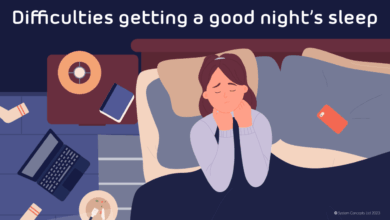
Self care is hard – Self care is hard. It’s a truth many of us can relate to. The pressures of modern life often make prioritizing our well-being feel like an impossible task. From time constraints to financial limitations, emotional barriers to societal expectations, understanding
-why* self-care feels so challenging is the first step towards making it a reality. This exploration delves into the reasons behind this difficulty, offering practical strategies to navigate the hurdles and cultivate sustainable self-care routines.
We’ll examine the various reasons why self-care feels so daunting, exploring the common obstacles and contrasting perspectives on the issue. We’ll also explore the psychological factors that can make self-care a struggle, and discuss how to build a routine that fits your unique needs and circumstances.
Understanding the Perception of Difficulty

Self-care, while crucial for well-being, is often perceived as a difficult undertaking. This perception stems from a multitude of factors, including practical constraints, emotional barriers, and societal pressures. This exploration delves into the reasons why self-care is viewed as challenging, examining the various obstacles individuals face in prioritizing their own needs.The perceived difficulty of self-care is not uniform; it varies significantly depending on individual circumstances and cultural contexts.
Understanding these complexities is essential to fostering a supportive environment where self-care is not just an aspiration, but a practical reality.
Common Obstacles to Self-Care
Self-care often clashes with the demands of daily life, creating significant obstacles. Recognizing these obstacles is the first step towards overcoming them.
- Time Constraints: Many individuals struggle to carve out time for self-care activities due to demanding work schedules, family obligations, and other responsibilities. Juggling multiple roles and responsibilities can make prioritizing personal needs feel impossible.
- Financial Limitations: The cost of self-care activities, such as gym memberships, therapy sessions, or healthy food choices, can be prohibitive for some individuals. Limited budgets often force difficult choices between necessities and self-care.
- Emotional Barriers: For some, self-care can feel daunting due to feelings of guilt, shame, or a lack of self-worth. These emotions can create a sense of unworthiness, hindering the ability to prioritize personal needs.
- Societal Expectations: Cultural norms and societal pressures can also contribute to the difficulty of self-care. For example, the expectation to constantly be productive or the glorification of long working hours can create an environment where self-care feels indulgent or unnecessary.
- Psychological Factors: Underlying psychological conditions, such as anxiety or depression, can significantly impact an individual’s ability to engage in self-care. These conditions can create a sense of overwhelm and exhaustion, making self-care seem insurmountable.
Different Perspectives on Self-Care as a Struggle
The perception of self-care as a struggle is shaped by varied perspectives.
- Individual Experiences: Personal experiences play a crucial role in shaping one’s perception of self-care. Individuals who have faced significant challenges or adversity may find self-care difficult to prioritize due to feelings of inadequacy or overwhelm.
- Cultural Norms: Cultural norms and expectations can influence the perceived value of self-care. In some cultures, self-care might be viewed as selfish or unnecessary, hindering its adoption.
- Perceived Availability of Resources: The perceived availability of resources, such as support networks, financial aid, or mental health services, can significantly impact the ease of implementing self-care strategies.
Societal Pressures and Expectations
The pressure to conform to societal expectations can hinder self-care initiatives. These pressures often present obstacles that are not easily overcome.
- The “Hustle Culture”: The “hustle culture” prevalent in many societies emphasizes relentless productivity and long working hours. This often leads to a disregard for personal needs and the prioritization of work over self-care.
- Perfectionism: The pursuit of perfection can hinder self-care. Individuals striving for unattainable standards often find it challenging to accept imperfections and prioritize their well-being.
- Fear of Judgment: The fear of judgment from others can prevent individuals from engaging in self-care activities that may be perceived as indulgent or unnecessary.
Psychological Factors
Psychological factors play a crucial role in the perception of self-care as challenging.
Self-care is tough, let’s be honest. Juggling work, family, and everything else feels like a never-ending to-do list. It’s hard to prioritize your well-being when it seems like everything else is demanding your attention. And that’s precisely why so many people dislike the latest Republican healthcare plan; it feels like a further burden on already stretched resources.
The complex changes proposed just add another layer of stress and uncertainty, making self-care even harder to achieve. This is a major issue in the current political landscape, as many are concerned about the practicality of accessing essential healthcare services. To learn more about the specifics of why nobody likes the latest Republican healthcare plan, check out this article: why nobody likes the latest republican healthcare plan.
Ultimately, in a system that doesn’t prioritize your well-being, self-care becomes an uphill battle.
- Anxiety and Depression: Individuals struggling with anxiety or depression often find it difficult to motivate themselves to engage in self-care activities. These conditions can lead to a sense of hopelessness and exhaustion, making self-care seem unattainable.
- Trauma: Past trauma can significantly impact an individual’s ability to engage in self-care. Trauma survivors may experience difficulty regulating emotions, leading to challenges in prioritizing their well-being.
- Lack of Self-Compassion: A lack of self-compassion can make self-care feel burdensome. Individuals who are critical of themselves may struggle to forgive themselves for not prioritizing their needs.
Common Challenges in Self-Care Practices: Self Care Is Hard

Self-care, while crucial for well-being, often proves challenging to implement and sustain. This stems from a complex interplay of factors, including ingrained habits, societal pressures, and personal beliefs. Understanding these hurdles is essential to developing effective self-care strategies. This post dives deeper into the common obstacles people face in their self-care journeys.Self-care routines, if not meticulously planned and executed, can easily become unsustainable.
The reasons behind this are multifaceted and deeply rooted in individual circumstances. People frequently underestimate the time commitment required for self-care practices, or struggle to prioritize these activities amidst demanding schedules and responsibilities. Often, the initial enthusiasm for self-care wanes due to the lack of immediate gratification, as the benefits are often long-term and less tangible than immediate rewards.
Furthermore, self-care can sometimes feel indulgent or selfish, particularly in cultures that emphasize productivity and external validation.
Specific Difficulties in Implementing Self-Care Routines
Common difficulties encountered when attempting to implement self-care routines include scheduling conflicts, lack of motivation, and a perceived lack of time. People often struggle to fit self-care activities into already packed schedules, leading to feelings of guilt or inadequacy. This can be compounded by a lack of awareness or appreciation for the importance of self-care, resulting in a reduced likelihood of prioritizing these activities.
Common Reasons for Unsustainable Self-Care Routines
Self-care routines often become unsustainable due to a disconnect between desired outcomes and practical implementation. A common reason is the lack of a structured approach, leading to inconsistent practices and a sense of futility. Another obstacle is the absence of clear goals and expectations, which can result in a lack of motivation and a perception of wasted effort.
Finally, a failure to adapt routines to changing circumstances, such as life transitions or stress levels, can also contribute to their ineffectiveness and abandonment.
Barriers to Different Types of Self-Care
| Self-Care Type | Barriers |
|---|---|
| Physical | Lack of time, financial constraints, lack of access to resources (gyms, parks, etc.), physical limitations, or negative self-talk regarding physical abilities. |
| Emotional | Fear of vulnerability, difficulty identifying and expressing emotions, negative self-talk, lack of support systems, or feelings of inadequacy or worthlessness. |
| Social | Lack of social connections, shyness or introversion, fear of judgment, difficulty initiating or maintaining relationships, or feeling isolated. |
Demographic Differences in Self-Care Challenges
Different demographic groups face varying self-care challenges. For example, individuals from lower socioeconomic backgrounds may encounter significant financial constraints, limiting their access to resources like gyms or healthy food. Similarly, single parents often struggle to find time for self-care amidst the demands of childcare and household responsibilities. Cultural norms and expectations also play a significant role, with some cultures placing a greater emphasis on community and collective well-being than individual self-care.
Common Excuses for Avoiding Self-Care
| Excuse | Explanation |
|---|---|
| I don’t have time. | Often a result of poor time management and a lack of prioritization of self-care needs. |
| It’s selfish. | Stems from societal pressures and ingrained beliefs that prioritize external responsibilities over individual well-being. |
| I’m too tired. | A common excuse reflecting the cumulative effect of stress and a lack of restorative practices. |
| It’s not important. | Often a reflection of a lack of awareness or understanding of the long-term benefits of self-care. |
Strategies for Overcoming the Difficulty
Self-care, while crucial for well-being, often feels elusive in our busy lives. The perceived difficulty stems from various factors, including conflicting priorities, lack of time, and the challenge of integrating new habits. This section offers actionable strategies to navigate these obstacles and cultivate a self-care routine that works for you.Understanding the barriers to self-care is the first step towards overcoming them.
By recognizing the specific challenges you face, you can tailor your strategies to address those issues directly. This involves honest self-reflection and a willingness to experiment with different approaches until you find what resonates with your individual needs and lifestyle.
Actionable Steps to Overcome Challenges
Self-care isn’t a one-size-fits-all approach. Tailoring your self-care practices to your unique circumstances and preferences is key to success. Identifying specific challenges and creating a personalized plan will enhance your chances of making self-care a sustainable part of your life. Prioritize activities that genuinely nourish you and align with your personal values.
- Identify your priorities: Pinpoint the activities that truly bring you joy and relaxation. This might include reading, listening to music, spending time in nature, or engaging in a creative hobby.
- Schedule dedicated time: Treat self-care like any other important appointment. Block out specific time slots in your calendar for activities that promote your well-being. Even 15-20 minutes can make a difference.
- Break down large tasks: Overwhelming tasks can be daunting. Divide large self-care goals into smaller, more manageable steps. For example, instead of aiming to meditate for an hour, start with 5 minutes and gradually increase the duration.
- Integrate self-care into your daily routine: Incorporate self-care practices into your daily schedule. This could include a short walk during your lunch break, a few minutes of journaling before bed, or listening to calming music while preparing dinner.
- Set realistic expectations: Don’t aim for perfection. Self-care is a journey, not a destination. Focus on consistency and progress, rather than striving for immediate results. Even small acts of self-care can significantly improve your well-being.
Incorporating Self-Care into Busy Schedules
Fitting self-care into a packed schedule requires strategic planning and prioritization. Effective time management and resource allocation are essential to creating space for your well-being.
- Time management techniques: Utilize time management techniques such as the Pomodoro Technique or time blocking to structure your day and allocate specific time slots for self-care activities.
- Prioritize tasks: Identify the most important tasks and focus your energy on completing them efficiently. This frees up time and mental space for self-care.
- Delegate tasks: Where possible, delegate tasks to others to reduce your workload and create more time for yourself.
- Learn to say no: Protect your time and energy by learning to say no to commitments that don’t align with your priorities or well-being.
Managing Time and Resources Effectively
Effective resource management and time allocation are critical for successful self-care implementation. It’s about understanding your energy levels and adjusting your schedule accordingly.
- Track your energy levels: Observe your energy levels throughout the day to identify peak productivity times. Schedule demanding tasks during these periods and schedule self-care activities during times when you feel less energetic.
- Utilize technology: Leverage technology to streamline tasks, manage schedules, and track progress toward self-care goals.
- Optimize your environment: Create a supportive environment conducive to self-care. This might involve decluttering your workspace, playing calming music, or using aromatherapy to promote relaxation.
Breaking Down Large Self-Care Tasks
Large self-care tasks can seem daunting. Breaking them into smaller, manageable steps makes them less overwhelming and more achievable.
- Divide and conquer: Break down large tasks into smaller, more manageable steps. This allows for a sense of accomplishment at each stage, motivating you to continue.
- Set realistic goals: Set achievable goals that are aligned with your current abilities and resources.
Building Self-Care into Daily Routines
Integrating self-care into daily routines is crucial for long-term sustainability. It’s about weaving self-care into the fabric of your everyday life.
- Morning rituals: Incorporate mindfulness practices such as meditation or deep breathing exercises into your morning routine to set a positive tone for the day.
- Evening routines: Develop a relaxing evening routine to wind down before bed, such as taking a warm bath, reading, or listening to calming music.
Self-Care Methods and Effectiveness
A table outlining various self-care methods and their effectiveness:
| Method | Description | Effectiveness |
|---|---|---|
| Mindfulness Meditation | Focusing on the present moment without judgment. | High – reduces stress, improves focus, and promotes emotional regulation. |
| Yoga | Physical postures, breathing techniques, and meditation. | High – improves flexibility, strength, balance, and promotes relaxation. |
| Spending time in nature | Connecting with the natural environment. | High – reduces stress, boosts mood, and improves overall well-being. |
| Journaling | Writing down thoughts and feelings. | Moderate – can be highly effective for emotional processing and self-reflection. |
| Healthy Diet | Consuming nutritious foods. | High – provides energy, improves physical health, and contributes to mental well-being. |
Building a Sustainable Self-Care Routine
Self-care is not a one-time fix; it’s a journey of consistent effort and adaptation. Creating a sustainable self-care routine requires understanding your needs, setting achievable goals, and integrating self-care practices into your daily life. This approach fosters long-term well-being and prevents burnout, allowing you to experience the benefits of self-care without feeling overwhelmed or resentful.Developing a sustainable self-care routine requires careful planning and an understanding that self-care isn’t about perfection, but about progress.
It’s about building habits that nourish your mind, body, and soul, and integrating them into your life in a way that works for you.
Setting Realistic Goals
Realistic self-care goals are crucial for long-term adherence. Vague or overly ambitious goals can lead to frustration and abandonment of the entire self-care plan. Instead of aiming for drastic lifestyle changes overnight, focus on small, achievable steps. For example, instead of aiming to exercise for two hours daily, start with a 15-minute walk three times a week.
Gradually increase the duration and frequency as you build consistency. This gradual approach fosters a sense of accomplishment and encourages continued participation.
Tracking Progress and Identifying Areas for Improvement
Tracking your self-care progress is essential for identifying areas that need attention. Use a journal, a spreadsheet, or a dedicated self-care app to record your activities. This documentation helps you monitor your progress and identify patterns. For instance, if you find yourself skipping meditation sessions on Tuesdays, you can analyze the reasons behind this and adjust your schedule accordingly.
This data-driven approach enables you to understand your needs and tailor your self-care routine to your specific circumstances. Consider noting the time, duration, and feelings associated with each self-care activity. This deeper understanding allows you to fine-tune your approach for maximum effectiveness.
Consistency and Routine in Self-Care
Establishing a consistent self-care routine is vital for its effectiveness. Consistency creates a sense of normalcy and habit, making self-care an integral part of your daily life. Think of it like brushing your teeth – it’s a routine, but it’s also an essential part of maintaining oral hygiene. Likewise, incorporating self-care practices into your daily schedule reinforces their importance.
Consistency builds momentum and reinforces positive habits, creating a positive feedback loop that sustains your self-care journey.
Self-care is tough, let’s be honest. Juggling everything, especially when you’re preparing for a meeting with a clinical trials research coordinator or doctor, can feel overwhelming. Knowing how to structure your thoughts and questions beforehand can make a huge difference. Check out this helpful guide on how should I prepare for a meeting with the clinical trials research coordinator or doctor to feel more prepared and in control.
Even with all the preparation, self-care still feels like a monumental task sometimes!
Adjusting Self-Care Routines Based on Individual Needs
Individual needs and circumstances vary significantly. A routine that works for one person might not be suitable for another. Be flexible and adaptable. If you’re experiencing a particularly stressful week, you might need to increase your relaxation activities, such as meditation or taking a warm bath. Conversely, if you have more energy on a certain day, you might dedicate more time to physical activity.
Self-care is tough, especially when battling a chronic illness like rheumatoid arthritis. Finding the time and energy to prioritize your well-being can feel impossible. Fortunately, there are resources available to help manage symptoms and potentially find relief. For example, learning about current rheumatoid arthritis clinical trials could offer hope and potentially lead to better treatment options.
Ultimately, though, consistent self-care remains a challenge, even with these advancements.
Regularly assessing your needs and adjusting your routine accordingly ensures that your self-care practices remain relevant and effective.
Maintaining Motivation and Avoiding Burnout
Maintaining motivation is key to sustaining a self-care routine. Celebrate your progress, no matter how small. Acknowledge your efforts and reward yourself for sticking to your routine. Visual reminders, such as a motivational poster or a gratitude journal, can also boost your motivation. Avoid comparing your self-care journey to others.
Focus on your own progress and celebrate your unique achievements. Remember that self-care is a continuous process, and occasional setbacks are normal. Don’t get discouraged; instead, view them as opportunities for learning and adjustment. Burnout is often the result of overextending oneself. Build in periods of rest and relaxation into your self-care routine to prevent burnout and ensure sustained motivation.
Key Elements of a Sustainable Self-Care Plan
| Element | Description |
|---|---|
| Realistic Goals | Establish achievable, incremental steps instead of drastic changes. |
| Progress Tracking | Regularly monitor your self-care activities to identify areas for improvement. |
| Consistency | Integrate self-care practices into your daily routine for long-term effectiveness. |
| Flexibility | Adapt your routine based on individual needs and circumstances. |
| Motivation | Celebrate progress, avoid comparisons, and build in rest periods. |
Addressing Underlying Issues
Self-care isn’t just about pampering; it’s a crucial aspect of overall well-being. Sometimes, the perceived difficulty in practicing self-care stems from deeper, underlying issues that need attention. Recognizing these issues and understanding their impact on our mental health is vital for developing sustainable self-care routines. We must look beyond the surface level of feeling overwhelmed and dig deeper to find solutions that truly work.Understanding the root causes of self-care struggles can lead to more effective strategies for improvement.
This often involves acknowledging and addressing mental health challenges, which can significantly influence our ability to prioritize our own needs.
Potential Underlying Issues
Numerous factors can hinder self-care efforts. These range from unresolved emotional trauma to underlying mental health conditions like anxiety or depression. Lack of coping mechanisms, unrealistic expectations, and a scarcity mindset can also make self-care feel unattainable. Even seemingly minor stressors, like chronic sleep deprivation or unhealthy relationships, can chip away at our capacity for self-care. Identifying these contributing factors is the first step towards finding solutions.
Mental Health and Self-Care
Mental health and self-care are intrinsically linked. Good mental health provides the foundation for effective self-care practices. Conversely, neglecting self-care can negatively impact mental well-being. A healthy mind is more likely to prioritize and engage in activities that promote well-being. This includes prioritizing sleep, nutrition, and stress reduction techniques, all essential for mental health.
Conversely, a lack of self-care can lead to increased stress, anxiety, and even depression, making it harder to practice self-care in the future.
Addressing Emotional or Mental Health Challenges
If emotional or mental health challenges are impacting your self-care, consider these strategies:
- Seeking Professional Help: A therapist or counselor can provide guidance and support in identifying the root causes of your struggles and developing coping mechanisms. They can offer valuable insights into your thought patterns and behaviors that may be hindering your self-care efforts. They can also provide tools and techniques to manage stress, anxiety, and other mental health challenges.
- Mindfulness and Relaxation Techniques: Practices like meditation, deep breathing exercises, and progressive muscle relaxation can help manage stress and promote a sense of calm. These techniques can be integrated into your daily routine to build resilience and improve your ability to engage in self-care activities.
- Building a Support System: Talking to trusted friends, family members, or support groups can provide emotional validation and practical assistance. Sharing your struggles and experiences with others can create a sense of community and reduce feelings of isolation.
Seeking Professional Support, Self care is hard
When self-care struggles persist despite your best efforts, seeking professional support is a crucial step. A mental health professional can provide a safe space to explore underlying issues and develop personalized strategies for improvement. They can help you identify patterns and develop coping mechanisms tailored to your specific needs. Don’t hesitate to reach out if you feel stuck or overwhelmed.
Creating a Support System
Building a strong support system is vital for sustained self-care. This system can consist of friends, family, mentors, or support groups. These individuals can offer encouragement, understanding, and practical assistance. They can also provide accountability and motivation to maintain your self-care routine.
Resources for Mental Health Support
| Resource Type | Description |
|---|---|
| Therapists/Counsellors | Licensed professionals who provide individual and group therapy to address mental health concerns. |
| Support Groups | Structured forums where individuals facing similar challenges can connect, share experiences, and provide mutual support. |
| Hotlines | Confidential resources offering immediate support and guidance during crises or difficult times. |
| Online Therapy Platforms | Virtual platforms providing access to therapists and counselors for convenient and accessible mental health support. |
| Crisis Text Line | Provides 24/7 support via text message for individuals experiencing emotional distress or crisis. |
Wrap-Up
Ultimately, self-care isn’t about perfection; it’s about progress. This journey isn’t about magically transforming overnight; it’s about understanding the obstacles, implementing practical strategies, and creating a self-care plan that works for you. By recognizing the challenges, developing effective strategies, and addressing underlying issues, you can move towards a more sustainable and fulfilling self-care routine. Remember, small steps lead to significant improvements.
This isn’t a destination; it’s a continuous journey of self-discovery and well-being.





